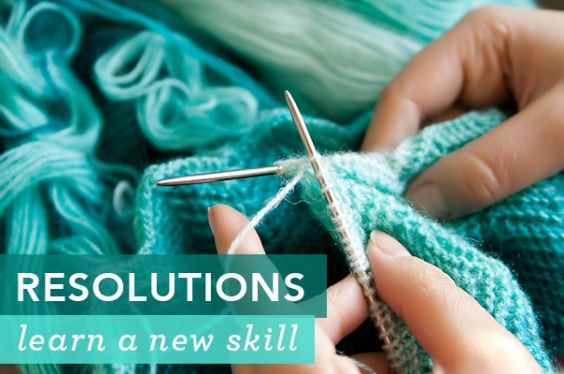Making resolutions for the new year is a 4,000-year old tradition, so if you’re hoping to make 2014 the year you get healthier, fitter, or happier, you have about four millennia worth of company. To help you on your way, we’ll be posting 10 science-backed action steps for a popular resolution every day through January 12. Be sure to check back for hints and tips to kick off your best year yet!
LEARN A NEW SKILL
Taking a class in a new subject or teaching yourself a skill is more than just a way to pass time and have fun. It also keeps your mind sharp
1. Believe that you’ll succeed.
Prepare yourself for learning by simply being confident in your abilities. Believing in one’s intelligence has been shown to lead to success in learning
2. Prep your mind.
We can make our minds sharper with simple tricks, from getting adequate sleep to clearing clutter, doodling and even playing video games — preparing us to absorb all kinds of new information and skills.
3. Take more blink breaks.
Research has shown that blinking more helps us focus attention and process whatever we’re seeing.
4. Learn by doing.
Trying to craft, create, or build something? Start with a simple DIY project to learn the basics, and then move on to morecomplexprojects.
5. Immerse yourself.
Under the right circumstances, adults can learn to speak new languages as well as native speakers. Research has shown that immersion learning helps adults retain what they’ve learned.
6. Focus on technique, not outcome.
Try “deliberate practice,” which means first working on the techniques required to master a given skill, then setting specific goals, and finally getting (and using) feedback from trusted sources.
7. Get better at hacking.
Not this kind. Life hacks are tips, tricks, and shortcuts that make everyday life easier, more efficient, or just plain fun. Skills in and of themselves, some life hacks even make us better at learning. Hone in on one area of life you wish you had more mastery of — laundry, etiquette, personal finance — and choose two or three hacks to learn and integrate into your routine.
8. Ace any test.
If you’re taking a class in the new year, good study habits go a long way. Many of them are as simple as taking written notes, reading aloud, and training your memory
9. Commit to 100 days of practice.
With the app 100, users accept a challenge to practice getting better at something for 100 days and share a ten-second video of their progress as they go. People are using the app to learn gymnastics, ukulele, juggling, and more. Although there are no promises about how proficient you’ll be after 100 days, the app and community could provide built-in motivation to practice and learn from others.
10. Learn for the sake of learning.
Even if there isn’t a specific skill you absolutely need to have, learning for its own sake is fun and keeps the mind sharp
What skill will you learn in 2014? Let us know in the comments below or get in touch with us on Twitter.


